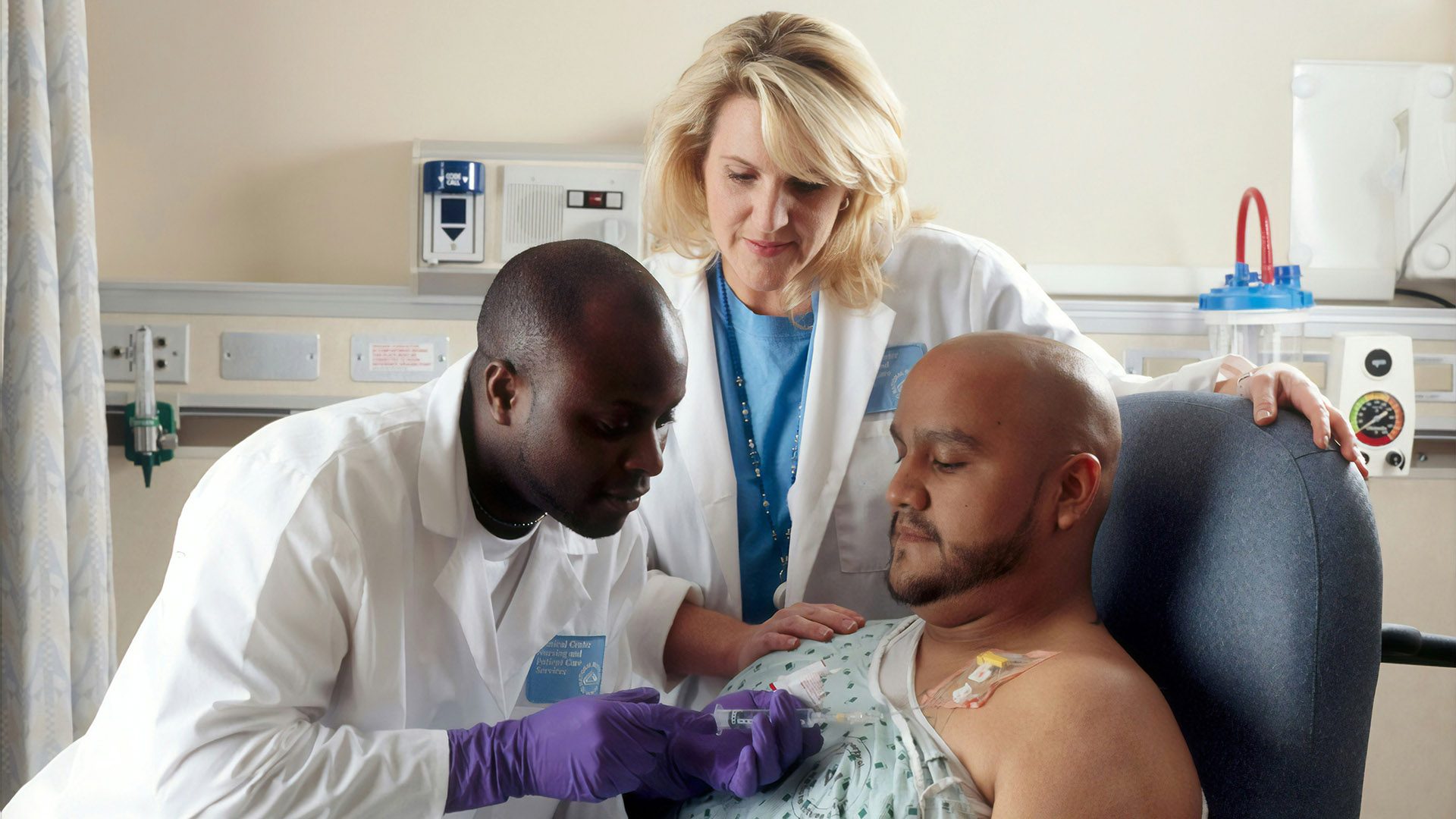Your Cancer Treatment Options
Learn as much as you can about your type of cancer and treatment options. Start with information you get from your health care team and the opinions you get from other health care providers.

There are benefits and risks involved with any testing or treatment. Talk with your health care provider about both and develop a cancer treatment plan that’s best for you. You will be asked to read and sign an informed consent agreement that indicates that you understand the risks when you decide on and begin treatment.
You and your health care team will update your plan as you go through cancer treatment. Together, you can come to the best decisions at each phase of treatment. Ask a loved one, friend or patient navigator to go to appointments with you to provide support, ask questions and record the information provided by the health care team.
Common cancer treatment options:
- Chemotherapy.
- Radiation therapy.
- Biological therapy that works with the immune system.
- Surgery.
- Hormone therapy.
- Treatment to manage pain.
- Stem cell transplant.
- Clinical trials.
- Treatment to control swelling (such as lymphedema).
- Complementary and alternative medicine (CAM).
Research Your Treatment Options
Schedule a meeting with your provider to discuss what he or she thinks may be the best treatment option for your situation. Before this meeting, research information about treatment methods recommended for your type and stage of cancer.
1. Learn about current recommendations for treating your type of cancer. Use reliable, high-quality resources such as the online information from the National Comprehensive Cancer Network (NCCN) Clinical Practice Guidelines in Oncology.
2. Write down questions and concerns to share with your provider. For example, you may be concerned about certain side effects such as hair loss or fatigue. Ask for help if you do not understand the NCCN guidelines. Your provider should be familiar with these.
3. Meet with your health care provider. If your provider suggests a treatment method that is not the same as the NCCN guidelines, ask him or her to discuss the reasons with you. Express your concerns.
Specify how much you want to know about your type and stage of cancer. For example, you may or may not want to discuss life expectancy statistics. Discuss the treatment that the provider recommends for your situation. Say what you think about each option.
4. Ask loved ones, friends and other health care team members to share information with you. You can contact nonprofit cancer organizations for information about treating your type of cancer.
5. Consider your own preferences for cancer treatment. Find out if there is another option if a treatment method has serious side effects. You may want to ask your health care provider if you can talk with another patient who has already completed the treatment recommended for you. It can be very helpful if that person was diagnosed with the same type and stage of cancer.
Questions to Ask Your Health Care Provider
- What are the treatment options for this type and stage of cancer?
- Will treatments occur in the clinic (outpatient) or in the hospital (inpatient)?
- How long will each type of treatment last?
- What side effects are possible?
- What can be done to control side effects?
- Can this type of treatment affect sexual function or fertility?
- Will treatment affect the ability to do day-to-day activities?
- What would you (the provider) choose as treatment for yourself or a loved one?
- Will you provide a treatment plan for the entire length of therapy?
- Can I work during treatment?
Traveling to Receive Medical Care
You have the right to get the best possible health care. Some patients travel outside their communities to get another medical opinion. Others travel to receive cancer treatment. Here are some things to keep in mind:
- If you have health insurance, ask for approval in writing from the insurer before you travel. Ask them to also put in writing what they will cover and how much they will pay.
- Contact a social worker at the treating hospital or medical center for help finding support services. Nonprofit cancer organizations can also help you find services.
- Some cancer centers help patients who travel for care by providing short-term housing for loved ones. Some nonprofit programs provide help with air and ground transportation to travel for treatment. Check out National Association of Hospital Hospitality Houses and National Patient Travel Center.

